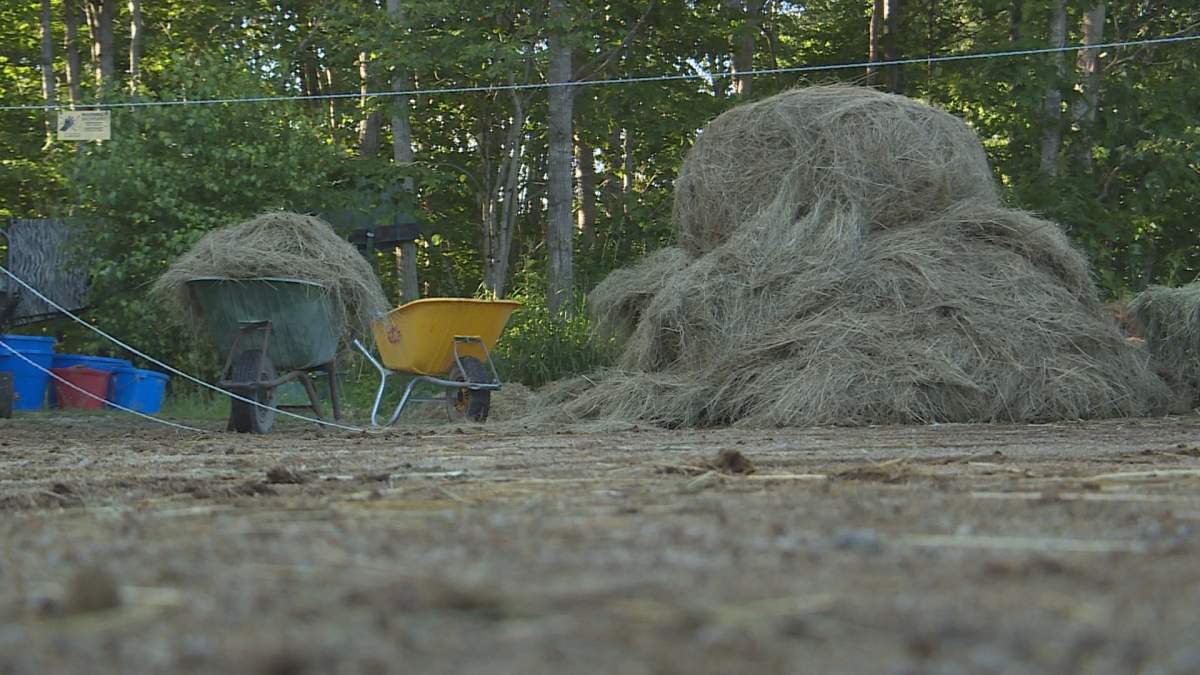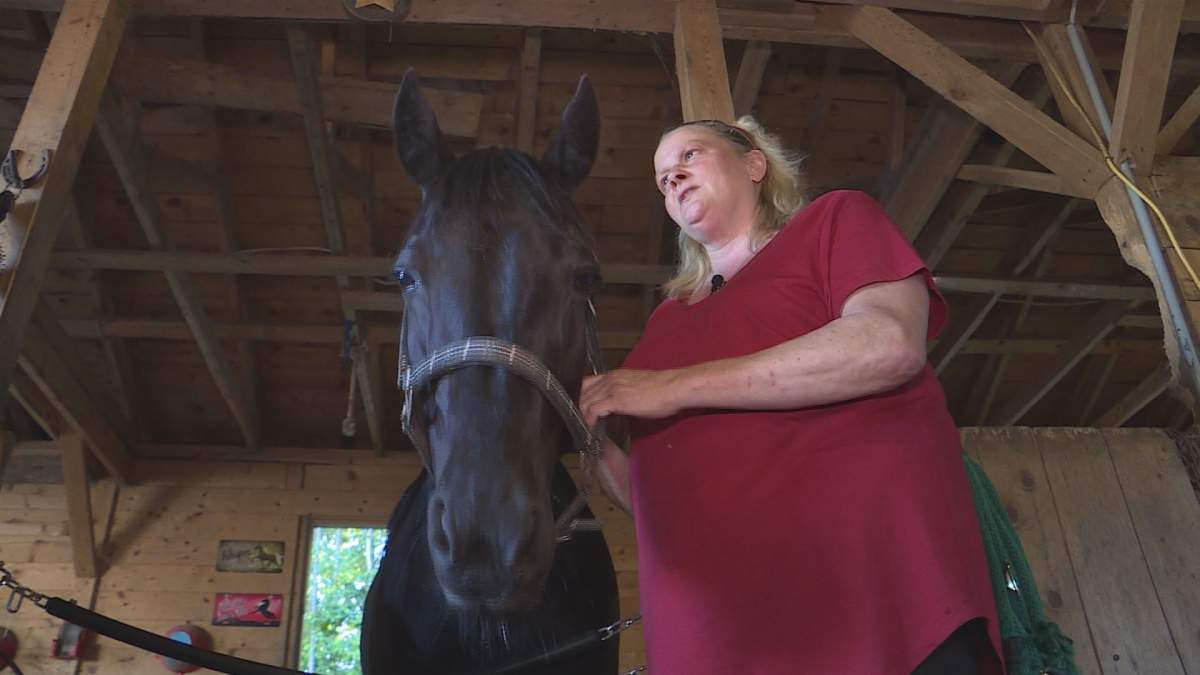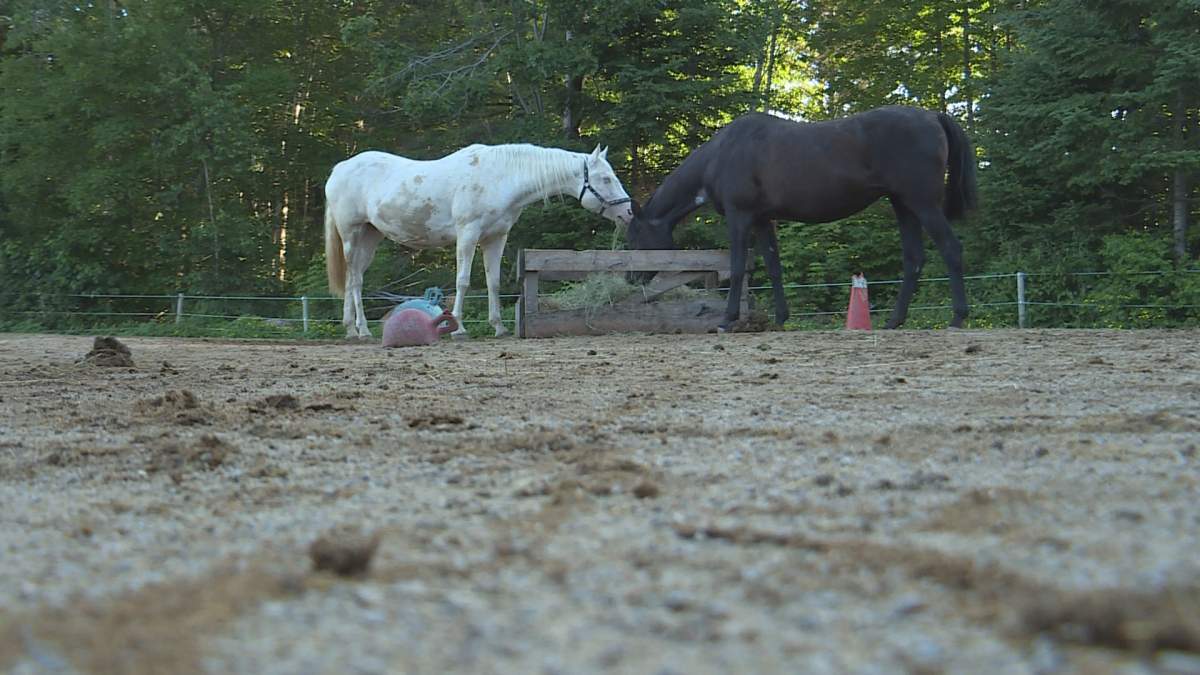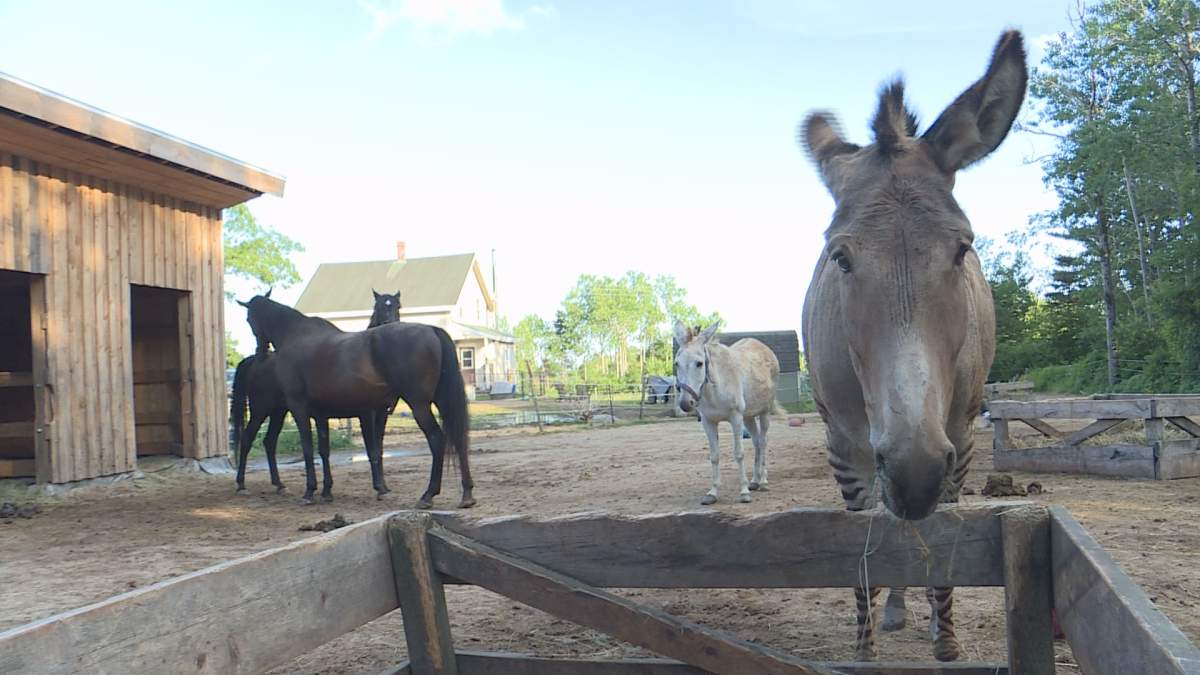Koko, an eight-year-old mare, is using all her strength to fight off a rare and potentially fatal disease.

She’s one of several animals at Integrity’s Haven Equine Rescue Centre Society (IHERC) in Chester that has botulism, a paralyzing disease.
READ: Halifax Junior Bengal Lancers put stables in quarantine after respiratory infection detected
It’s believed the animals contracted the illness from their food.
“In this particular case, the researcher and doctor in PEI is confident in his diagnosis that it came from my hay,” said Angela Welburn, owner of the rescue.
“A snake, baby rabbits, could have been a field mouse got wrapped up in the hay as it was being processed off the ground, then it deteriorates and decays inside of your hay.”
READ MORE: Volunteers at the heart of horseback riding program
In the last week, Welburn says two of her horses have died from botulism. 29-year-old Freedom was the first animal to fall ill. 12-year-old Dakota passed away days later.
Welburn is now is working around the clock to care for Koko and another horse that is believed to have the same illness.
“Koko’s, she’s fighting. I think she’s going to pull through,” she said.
“My heart tells me Koko is going to fight through.”
Welburn says she heard of botulism but thought it was only associated with moist hay, not the hay that she gives her animals. As such, she didn’t vaccinate.
“Anybody’s horses can get it from dry hay,” Welburn said. “It doesn’t have to be wrapped. It can be unwrapped hay and it can be square hay.”

Get daily National news
She says she inquired about the vaccination once in the past but was told it would be too expensive.
She’s now come to learn it’s less than $70 per vaccine and is encouraging others to vaccinate their horses.
“They are my family. They’re my children,” said Welburn. “I mean, no, I didn’t give birth to them but they’re my family and the pain — I can’t tell you the pain of losing the first two horses. I can just tell you that part of me has to have died because it’s a hard feeling and I’m sick to my stomach all the time.”
The animals at this rescue come here because they’re in need. Welburn says she feels guilty the food she gave them may have made them sick.
All of the hay has since been removed from the farm.
“My heart just keeps on getting in my way. I keep thinking, ‘what if, what if,'” said Welburn.
“It’s not one horse that got sick, gave it a shot and it got better. Two animals died from hay that I bought.”
WATCH: Children’s Wish Foundation surprises Nova Scotia girl with new horse

In addition to the horses, Welburn says two zonkeys — hybrid animals that are the result of cross-breeding zebras with other equine species — named Zelda and Zonk are also showing sings of botulism.
Each antidote runs about $1,500 and can only be purchased in Prince Edward Island. With the costs continuing to skyrocket, Welburn says she needs help.
“I know last Friday I was at $15,000 in debt. I don’t know where I’m at right now. I don’t know and I really, I want to know right now because I don’t want it to play a part in my decision-making for any of these guys.”
A GoFundMe Page has been set up, with the hopes of alleviating some of the financial strain. In the meantime, Welburn says she is continuing to monitor all her animals for signs of botulism but is feeling optimistic.
- Khamenei’s death met with ‘jubilation’ among Iranian-Canadians: Liberal MP
- ‘Something just went off’: Canadians in Middle East describe ‘surreal’ Iran missile strikes
- Iran begins search for new leader; U.S. military says 3 service members killed
- Queen’s University students stranded in Doha after Iran attack shuts down airspace












Comments
Want to discuss? Please read our Commenting Policy first.